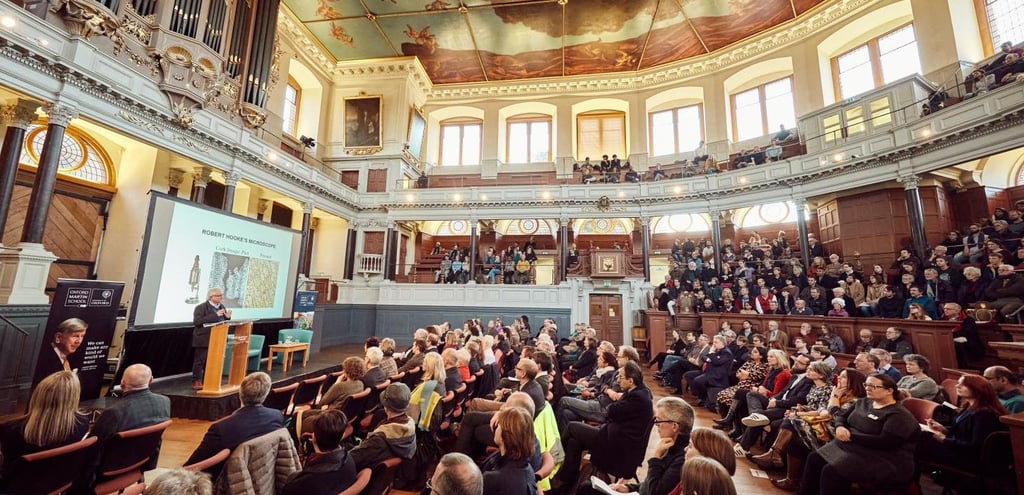Hidden in Plain Sight: How UK Universities Can Lead the Sustainable Events Revolution
The UK’s universities quietly host more than 1.4 million events a year, welcoming over 110 million attendees and contributing upwards of £18 billion to the economy. Yet beyond their academic reputation, these venues hold something even more powerful, the ability to set a gold standard for low-carbon events. By leveraging their influence, infrastructure, and community role, universities can become the blueprint for sustainable event hosting in the UK and beyond.
CARBON FOOTPRINTEVENTS
Mark Haley
8/17/20255 min read


Introduction: The Sleeping Giant of the UK Events Industry
Walk onto almost any UK university campus and you’ll find lecture theatres, conference halls, exhibition spaces, and performance venues buzzing with activity. Some of these events are purely academic, but many are commercial in nature, drawing corporate clients, professional associations, and public audiences in their thousands.
What’s less widely recognised is just how large and economically significant the UK university events market has become. New analysis shows universities collectively host over 1.4 million events annually, attracting more than 110 million attendees and generating an estimated £18 billion in direct expenditure each year.
But beyond the impressive numbers lies a unique opportunity: universities are ideally positioned to lead the way in sustainable events, setting standards for both venue operations and, critically, how delegates travel to and from those events. In an industry under increasing pressure to reduce carbon footprints, UK universities could become flagship examples of how to align people, planet, and profit.
1. From Niche Venues to Events Powerhouses
Just a decade ago, many academic venues were seen as a “budget” option for event planners, available mostly outside term time and offering basic facilities. That perception has shifted dramatically.
Capital Investment Driving Transformation
Between 2010 and 2023, UK universities collectively invested hundreds of millions into state-of-the-art event facilities:
Dedicated year-round conference centres
Boutique hotel-standard accommodation on campus
Cutting-edge AV and hybrid meeting technology
This transformation has positioned them as credible competitors to traditional conference centres and hotels. In fact, corporate clients now make up 55% of events held at academic venues, up from 46% pre-pandemic.
Attracting international delegates and speakers boosts prestige, but also increases long-haul flights and associated CO₂ emissions.
This is the Internationalisation Paradox.
The Professional Factor
Professional sales and marketing consortia, such as Academic Venue Solutions and Venues of Excellence, have further raised the profile of university venues. By offering a single point of contact, quality benchmarks, and national marketing reach, these consortia have helped reposition academic spaces as premium, knowledge-rich environments ideal for corporate meetings, training, and conferences.
2. The Triple Impact of University Events
University events deliver value across the B-Corp triple bottom line:
People - Enhancing community engagement and improving access to knowledge.
Planet — Offering opportunities to integrate low-carbon planning and influence sustainable delegate behaviour.
Profit — Generating commercial income that supports the university’s wider mission.
People: A Hub for Community and Collaboration
In 2022–23, UK universities recorded over 602 million instances of public engagement, from festivals and exhibitions to public lectures. These events foster cultural exchange, lifelong learning, and community cohesion.
Planet: An Opportunity for Climate Leadership
While venue-based sustainability initiatives (like renewable energy sourcing) are becoming standard, delegate travel remains the biggest single source of emissions for most events, often exceeding 80% of the total carbon footprint. Universities can be early adopters of door-to-door sustainability, influencing how attendees plan their journeys and choosing venues that inherently reduce travel distances.
Profit: Strengthening the Financial Base
A 2019 survey by CUBO found conferencing accounted for £54.8 million across 26 institutions, an average of £2.1 million per university. With ongoing pressures on public funding, commercial events represent a vital and growing income stream.
Corporate clients now make up 55% of events held at academic venues, up from 46% pre-pandemic.
3. Why Universities Are Perfectly Placed to Lead Sustainable Events
Universities combine national reach, global reputation, and community presence. This unique position allows them to address sustainability challenges at multiple levels:
Local/regional events that reduce long-distance travel needs.
Hybrid event capability to accommodate remote participation.
Research credibility to trial and showcase new sustainable travel strategies.
Regional Anchors
With over 260 higher education providers spread across the UK, almost every region has a university with professional-grade event space. This distribution means corporate clients can often find a suitable venue close to their base, reducing reliance on long-haul travel.
Academic Authority
Universities are natural champions for climate science and sustainability research. When they also model low-carbon event practices in their operations, they walk the talk, reinforcing their credibility with students, partners, and funders.
4. The Missing Piece: Delegate Travel Emissions
Even the most sustainable venue operations can be overshadowed by how delegates get there. Research from the MICE sector shows that delegate travel can account for the vast majority of event emissions, particularly when international or long-distance domestic travel is involved.
The “Internationalisation Paradox” in Universities
In the globalised higher education landscape, attracting international delegates and speakers boosts prestige, but also increases long-haul flights and associated CO₂ emissions. This is the Internationalisation Paradox:
The very measure of success (global reach) is also the primary driver of environmental impact.
Universities that host major international conferences face the same dilemma as large trade shows like ICE London, balancing the benefits of global connectivity with the need to cut emissions.
5. How Bizumi’s Sustainable Travel Planning Fits In
Bizumi’s platform directly addresses this challenge by integrating travel sustainability into the earliest stages of event planning. For universities, this means:
Multi-origin travel optimisation
Identifying venues and dates that minimise total travel distance and emissions for all attendees.Aggregated mode comparisons
Ranking transport options by CO₂, cost, and travel time.Data capture at registration
Building accurate travel emissions profiles to inform reporting and strategy.Behavioural nudges
Surfacing the most sustainable options as the easiest, most convenient choices.
This approach aligns perfectly with the B-Corp ethos: empowering people to make better choices, protecting the planet, and delivering measurable value to the organisation.
6. Case Studies: Potential in Practice
Example 1: A National Research Symposium
A UK-wide university-hosted symposium could use Bizumi to:
Choose a centrally located venue to reduce average travel distance.
Promote rail travel with integrated booking links.
Track actual travel modes for post-event carbon reporting.
Impact: 20–30% reduction in emissions versus a default location.
Example 2: International Academic Conference
For events attracting significant international participation:
Model different city hosts to identify the lowest aggregate flight distance.
Encourage regional hubs with hybrid participation to reduce intercontinental travel.
Use carbon calculators at registration to increase awareness.
Impact: Potential 15%+ emissions reduction without sacrificing global reach.
7. Practical Steps for Universities to Lead
Adopt a Door-to-Door Sustainability Policy
Consider every part of the delegate journey, not just the venue operations.Integrate Sustainable Travel Planning into Event Workflows
Make tools like Bizumi part of the booking and registration process.Invest in Hybrid Infrastructure
Ensure remote participation options are seamless and engaging.Report Transparently on Travel Emissions
Use data to demonstrate reductions and set improvement targets.Leverage Academic Expertise
Collaborate with sustainability researchers to design, test, and publish case studies.
8. The Competitive Edge of Sustainable Leadership
In a competitive events market, sustainability is no longer a “nice to have.” Corporate clients, public funders, and attendees increasingly expect clear environmental commitments backed by data. Universities that can demonstrate leadership here will not only enhance their brand but also attract new markets, from sustainability-focused corporates to environmentally conscious conferences.
By embedding sustainable travel planning into their operations, universities can:
Differentiate themselves from commercial venues.
Align with national and global climate goals.
Generate positive media and stakeholder attention.
Conclusion: From Hidden Giant to Visible Leader
The UK university events sector is vast, valuable, and poised for growth. But with great scale comes great responsibility. By tackling delegate travel, the most significant, yet most overlooked, source of event emissions, universities can transform from hidden giants into visible leaders in sustainable events.
Bizumi exists to make that transformation possible. Our planning tools, data capabilities, and sustainability-first approach give universities the means to reduce emissions while enhancing delegate experience and protecting revenue.


